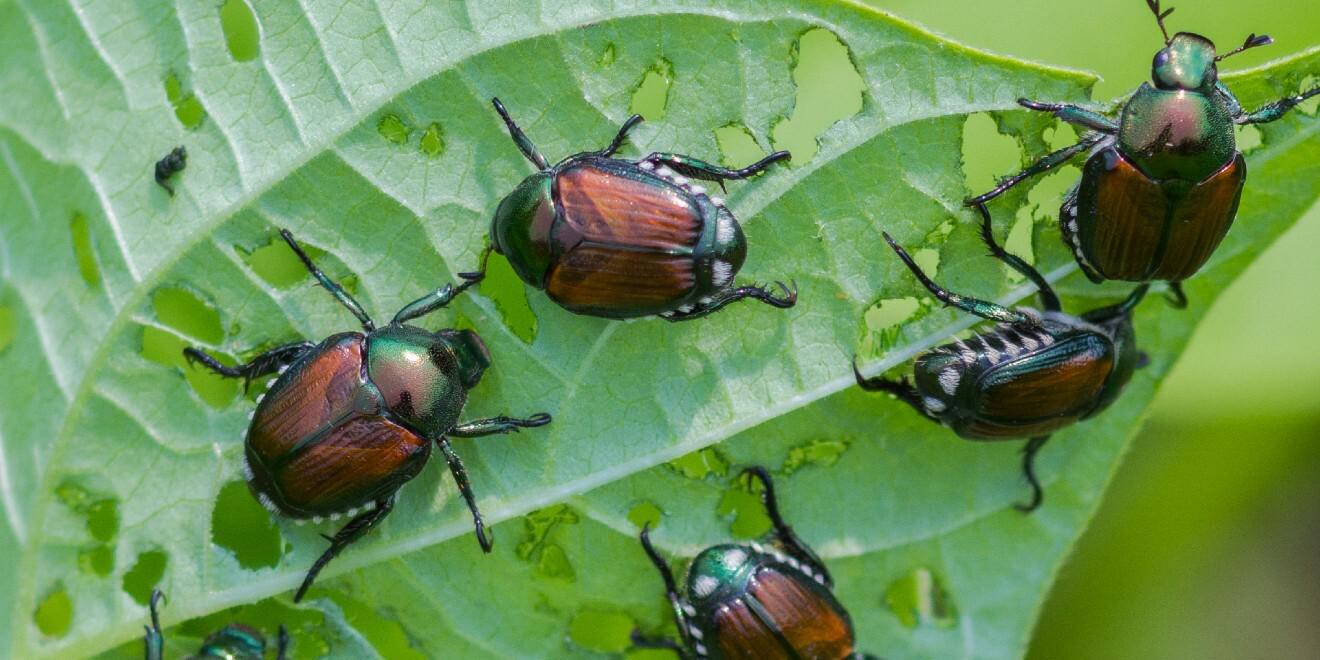Tips from Mosquito Squad of Southern Maine
Posted by Mosquito Squad
December 20, 2023

Have You Heard the News? The Bugs are Wicked Bad this Year!
If you’ve spent any time outside recently, you’ve most definitely had a buggier-than-normal experience. Guess what? It’s not your imagination. Just check out some recent media headlines:
- “Expert agrees, Mosquitoes 'horrible' this year” NewsCenterMaine.com WCSH.
- “Here's Why Ticks, Black Flies and Mosquitos Have Been Extra Bad This Year” WCYY.com.
- “Rainy Spring has Produced a Bumper Crop of Ticks, Black Flies and Mosquitoes.” Sun Journal.com.
Insect expert Jim Dill of the UMAINE Cooperative Extension says it’s all because of the very wet spring. Dill says mosquitoes love the standing water that accumulates after it rains. Just a few ounces of water can become an ideal breeding place for hundreds of mosquitoes.
Dill and other experts agree that getting rid of any standing water is a crucial step in reducing the number of biting insects that inhabit a given area.
"Empty all the standing water you can. A plugged-up gutter, buckets and pails used in gardening -- make sure you empty those," says Dill.
Unlike most of us, the dreary and wet spring that we all suffered through actually created ideal conditions for ticks, black flies and mosquitoes.
Without very little sunshine or extended periods of dry weather conditions, mosquitoes and black flies spent most of May and June multiplying at record levels. As a result, we’re swatting and slapping away more of the biting bugs than usual.
Maine Warden Cody Lounder, who covers the Lewiston-Auburn region, spends a lot of time tin the woods. Naturally, he’s not a big fan of biting mosquitoes and ticks.
The warden, along with the rest of us, are now experiencing the effects of the long, cool, wet spring.
“The mosquitoes are really bad this year,” Lounder said. “They’re relentless and out in force. It’s pretty brutal.”
Louder is also a man that’s used to pulling ticks off himself, but also says that this year is one of the worst he’s seen, “Oh man. I’ve probably pulled off over 100 ticks crawling on me. I had one deer tick attached,” he recently told a reporter.
Ticks as a Health Hazard
While biting mosquitoes are a real nuisance to anyone who enjoys spending time outdoors, it’s the bumper crop of ticks that have many health officials concerned.
Over the last few months, the Tick Lab at the University of Maine Orono have studied more than 500 ticks collected from across the state. They’ve found that nearly 45 percent of the ticks they've analyzed have tested positive for the bacteria that can cause Lyme disease.
Along with mosquitoes, deer ticks don't survive well in hot and dry conditions. Unfortunately, we didn’t get much of that this past spring.
Mainers and those visiting this summer who plan on spending time outdoors (especially along our beautiful southern and Downeast coastlines) should look into adding products that contain permethrin - to treat clothing and gear – before venturing out for a hike or even a casual romp along scenic greenways such as the Eastern Trail in Scarborough, Saco and Old Orchard Beach.
What to do? Reduce habitat. Reduce populations.
Reducing breeding habitats for both ticks and mosquitoes includes making a habit out of turning over anything that can hold water after a rain storm. This includes everything from tarps and outdoor furniture to kids toys and gardening tools. Bird baths should also be cleaned periodically and maintained with clean water every few days.
Reducing the tick population in a given area can be a bit more challenging for homeowners since ticks often rely on small rodents for both transportation and as hosts to reproduce.
Along with taking steps to discourage mice and other rodents to inhabit your property (by setting traps and eliminating potential sources of food), an integrated pest management (IPM) approach to tick reduction includes the responsible and effective use of pesticides.
More specifically, controlling a tick population with the use of pesticides usually consists of implementing two methods – habitat targeted application and the treatment of tick hosts.
At Mosquito Squad of Southern Maine, we take pride in spending the time to really look at each property we service to determine exactly where the hot spots (areas that are prime breeding ground for ticks and mosquitoes) are before applying our highly effective Protective Barrier Treatment.
Our only business is ridding your outdoor living space of troublesome mosquitoes and dangerous ticks so that you can safely enjoy all that a summer in Maine provides. If ticks are a real problem on your property, Mosquito Squad provides the toughest and most effective tick control available.
With a customized combination of aerial Mosquito Squad Barrier Treatment treatments and strategic placement of specially designed tick tubes, we can dramatically reduce the number of ticks present in as little as one season.
Our tick tubes attract many of the same small rodents that ticks attack and use as hosts to reproduce. When these rodents come in contact with the specially treated cotton material inside the tubes, any ticks that are already attached to them are soon killed. Further, when the rodent takes the treated material into their nests or underground den, the insecticide now serves as a year-round protectant and tick – larvae neutralizer at the very source where ticks are known to breed.
While there’s little that we can do to change what Mother Nature decided to bring us this spring, there’s no saying that we’ve got to continue to suffer indoors now that the warm weather of summer has finally made its appearance.
Get out there and soak up all the sunshine and good times you can…and if you don’t want to waste a minute of it swatting away mosquitoes or worrying about coming in contact with Lyme Disease in your own backyard, just call The Squad.
Thanks for reading, Erik H.















